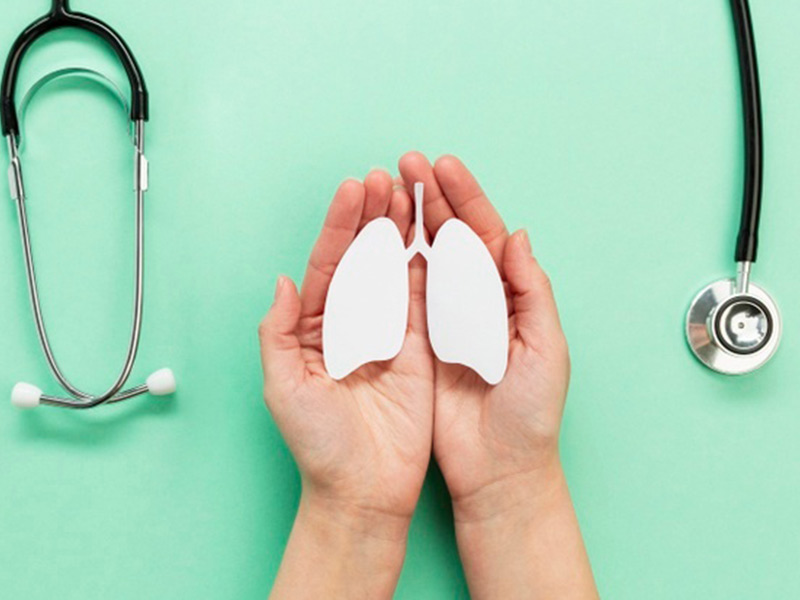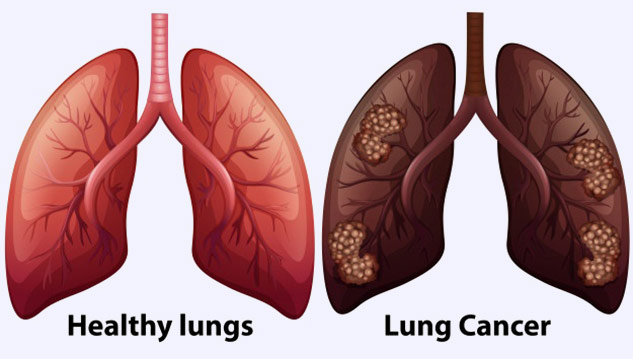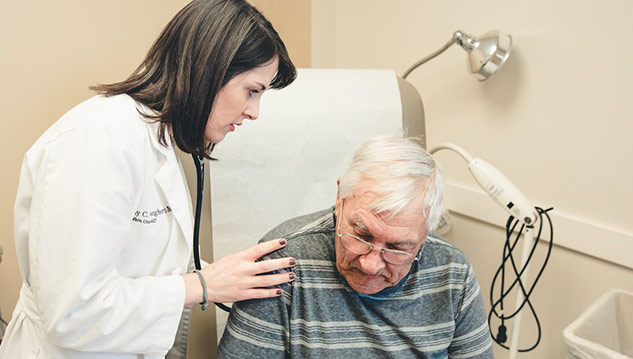
As the name suggests, lung cancer starts in the lungs and if left untreated can then spread throughout the body. It is commonly detected amongst smokers and is one of India's most common cancer, accounting for 6.9% of all new cancer cases and 9.3% of all cancer-related deaths in men and women. The month of November is marked as Lung Cancer Awareness Month every year to raise awareness about lung cancer and the impact of this disease. For this month, Onlymyhealth editorial team spoke to Dr. Sandeep Nayak K, Director-Department of Surgical Oncology, Fortis Hospital, Bannerghatta Road, about the risk factors of lung cancer and tips to prevent it.
Table of Content:-
Lung cancer causes

Several factors may increase the risk of lung cancer; people who smoke have the most significant risk of lung cancer. Smoking contributes to nearly 70% of lung cancers. Other factors that may contribute includes air pollution. Heredity may contribute to about 8% of lung cancers. As per Dr. Sandeep, here are the risk factors of lung cancer:
1. Smoking: The units of cigarettes smoked per day escalate the risk of lung cancer by harming the cells lining the lungs. Upon inhalation of carcinogens loaded with cigarette smoke, changes in lung tissue occur and the damage accumulates over the years to cause cancer.
2. Passive smoke exposure: Even if you don't smoke, secondhand smoke increases the risks.
3. Radiation therapy: Previously performed chest radiation therapy for any cancer or any other reason highly adds to the possibility.
Also read: What Is Lung Cancer? Here Are Its Symptoms, Causes, Stages And Treatment
4. Radon poisoning: Radon can build up to dangerous levels in any structure, including homes, as uranium naturally breaks-down in soil, rock, and water, which is eventually breathed in. Radon is found higher quantities in some geographic locations.
5. Asbestos and carcinogens: Workplace exposure to asbestos and other cancer-causing compounds like arsenic, chromium, and nickel, especially if you smoke, can increase your risk of lung cancer. Asbestos is linked to a special cancer type called mesothelioma.

6. Family history: Lung cancer is more likely in people who have a parent, sibling, or child who has/had the disease. The hereditary risk is estimated to be 8%.
Lung cancer preventive measures
According to Dr. Sandeep, here are the risks of lung cancer can be lowered by:
1. Quitting Tobacco
Don't start smoking. While the kids are young, talk to them about the dangers of smoking and how to handle peer pressure. If one quits before cancer develops, damaged lung tissue begins to self-heal. Regardless of age or duration, quitting smoking may reduce the probability of lung cancer, helping you live longer. Consult your doctor about strategies and aids like nicotine replacement products, medications, and support groups to assist you.
Also read: High Fibre And Yoghurt Could Reduce Lung Cancer Risk: Study
2. Avoid secondhand smoke inhalation

If you live or work with someone who smokes, encourage them to quit. Keep a safe distance from people who smoke.
3. Limit your exposure to carcinogens
Protect yourself from toxic chemicals at work by taking precautions. If you're given a face mask for protection, for example, always put it on. Consult your doctor about additional safety precautions you can take at work. Smoking increases the risks of lung damage due to workplace carcinogens.
4. Maintain a healthy diet
Consume a nutritious diet rich in fruits and vegetables. Vitamin and nutrient sources from food are the best. Vitamin pills in large doses should be avoided because they can be harmful.
Attempts to minimize the risk of lung cancer in persons who smoke now or in the past by giving them large doses of vitamins or vitamin-like medications have failed so far. Beta-carotene supplements, a substance related to vitamin A, have been shown in trials to raise the risk of lung cancer. So, as of today the best way to reduce lung caner risk is to stop smoking.
Also watch this video
How we keep this article up to date:
We work with experts and keep a close eye on the latest in health and wellness. Whenever there is a new research or helpful information, we update our articles with accurate and useful advice.
Current Version
